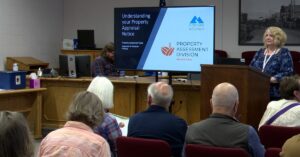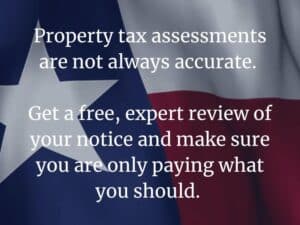Property tax hearings are your opportunity to challenge an unfair property tax assessment and potentially save thousands on your tax bill. Whether you’re a homeowner or business owner, navigating the Appraisal Review Board (ARB) hearing process can feel daunting—but with the right preparation, it’s a powerful tool to ensure fair taxation. This insider’s guide breaks down the hearing process, offers expert tips for success, and explains how to present a compelling case, drawing on best practices from the Texas Comptroller’s Office and Texas Tax Protest. With the 2025 protest deadline (often May 15) recently passed, now is the time to act for next year’s cycle or explore late protest options if eligible. Learn how to take control of your property taxes today!
What Is a Property Tax Hearing?
A property tax hearing is a formal meeting with the Appraisal Review Board (ARB), an independent panel of local citizens tasked with reviewing property tax protests. Authorized by state laws like Texas Tax Code Section 41.01, the ARB hears disputes between property owners and appraisal districts over assessed values, exemptions, or other appraisal actions. Hearings allow you to present evidence—such as comparable sales or repair estimates—to argue for a lower assessed value, which directly reduces your tax bill (taxes = assessed value × local tax rate, e.g., 2.5%).
- Purpose: Ensure fair and accurate property assessments, correcting errors like overstated values or ignored property conditions.
- Types of Issues: You can protest:
- Market Value: If your property’s assessed value exceeds its fair market value (what it would sell for).
- Unequal Appraisal: If your property is valued higher than similar properties.
- Exemptions: Denied or incorrectly applied homestead, senior, or agricultural exemptions.
- Errors: Mistakes in square footage, age, or condition.
- Outcome: A successful hearing can lower your assessed value, saving hundreds or thousands annually. For example, reducing a $400,000 assessment by $50,000 saves $1,250 yearly at a 2.5% tax rate.
Hearings are critical because appraisal districts often rely on mass appraisal methods, leading to errors.
The Property Tax Hearing Process: Step-by-Step
Understanding the hearing process is key to success. Here’s a detailed breakdown, informed by the Texas Comptroller’s guidelines and Texas Tax Protest’s expertise:
1. File Your Protest
- When: By the deadline, typically May 15 or 30–45 days after receiving your appraisal notice (mailed in spring, e.g., April 1 for homesteads, May 1 for others in Texas). For 2025, May 15 was likely the deadline, but late protests may be possible for military members or those away from home.
- How: Submit Form 50-132, Property Owner’s Notice of Protest (available on your appraisal district’s website), or a written letter identifying the property, owner, and reason for protest (e.g., “overvalued”). Include a proposed value if known.
- Cost: A small fee ($10–$50) may apply, often refundable if you win.
- Tip: File online or by certified mail to ensure receipt. If you missed May 15, 2025, contact your district to check for late filing options.
2. Receive Your Hearing Notice
- What to Expect: The ARB sends a written notice with the hearing date, time, location (in-person or virtual), and details like estimated taxes. In counties with populations over 120,000, you can opt for electronic delivery by submitting a form with a valid email address (Texas Tax Code Section 41.46).
- Timeline: Hearings are typically scheduled within 30–60 days of filing, often June or July, though some districts offer informal reviews sooner.
- Action: Note the hearing details and request an informal conference with the appraisal district to resolve issues before the formal ARB hearing.
3. Prepare Your Evidence
- Why It Matters: Strong evidence is critical, as the ARB evaluates your case against the district’s data. Texas Tax Protest emphasizes using data-driven arguments to boost success rates.
- Key Evidence Types:
- Sales Comparison: 3–5 recent sales of similar properties (within 6–12 months, half-mile radius) from MLS, county records, or real estate sites. Adjust for differences (e.g., subtract $10,000 for a comp’s extra bedroom).
- Property Condition: Photos of issues (e.g., damaged roof, outdated systems) and 1–2 contractor estimates for repairs (e.g., $15,000 for HVAC replacement).
- Income Approach (Commercial): Income/expense statements showing vacancies or high costs, plus market cap rate data (e.g., 6% vs. district’s 5%).
- Unequal Appraisal: Assessments of similar properties showing lower values (e.g., neighbor’s identical home at $380,000 vs. yours at $420,000).
- Errors: Surveys, deeds, or blueprints correcting data (e.g., 2,400 sq ft vs. listed 2,600 sq ft).
- How to Organize:
- Create a binder with a one-page summary, evidence tables (e.g., comps with addresses, sale prices), photos, and estimates.
- Use clear visuals (e.g., a graph comparing comps to your assessment).
- Submit evidence to the district at least 14 days before the hearing (per Texas Tax Code Section 41.67).
- Example: For a $450,000 assessment, gather three comps at $410,000–$420,000, photos of a leaky roof, and a $12,000 repair estimate to argue for $415,000, saving $875 yearly at 2.5%.
4. Attend the Informal Conference (Optional)
- What It Is: A meeting with an appraisal district appraiser to resolve your protest before the ARB hearing. Many cases settle here, per the Texas Comptroller.
- Pros: Faster, less formal, and may yield reductions (though often smaller than ARB outcomes).
- Cons: Accepting an informal offer waives your right to a formal ARB hearing.
- Strategy: Present your evidence, focus on key issues (e.g., comps, errors), and negotiate politely. If the offer is unsatisfactory, proceed to the ARB.
- Tip: Record the appraiser’s rationale to strengthen your ARB case.
5. Attend the Formal ARB Hearing
- Format: Typically 15–45 minutes, in-person or virtual, before a three-member ARB panel (independent citizens, not district employees). The setting is courtroom-like but less formal.
- Procedure (per Texas Tax Code Section 41.45):
- The appraisal district presents its valuation (e.g., comps, cost data).
- You present your case, focusing on evidence and proposed value.
- Both sides may ask questions; the ARB deliberates and decides.
- Your Role:
- Deliver a 5–7 minute presentation summarizing your evidence (e.g., “My home’s assessed at $460,000, but comps average $425,000, and repairs cost $15,000”).
- Use visuals (e.g., photos, comp tables) and stay factual.
- Answer questions calmly, avoiding emotional arguments.
- Tip: Practice your pitch and arrive early. If virtual, test your tech (camera, microphone) and upload evidence in advance.
6. Receive the ARB Decision
- When: Decisions are issued via email or certified mail within days or weeks (Texas Tax Code Section 41.47).
- Outcomes:
- Reduction: Your assessed value is lowered, reducing taxes (e.g., $40,000 cut saves $1,000 yearly at 2.5%).
- No Change: The district’s value stands.
- Increase (Rare): If the district proves your value is too low, taxes may rise.
- Next Steps: If dissatisfied, appeal to:
- State District Court: File within 60 days (costly, $5,000–$15,000 in legal fees).
- State Office of Administrative Hearings (SOAH): For properties valued over $1 million in large counties (fees ~$300–$1,000).
- Binding Arbitration: For properties under $5 million, a faster option (fees ~$450–$1,500, per Texas Tax Code Section 41A.03).
- Tip: Save all evidence for future protests or appeals.
7. Follow Up and Apply Exemptions
- Why: Confirm the new value and maximize savings with exemptions (e.g., homestead, senior).
- How: Check the district’s website for the updated assessment, apply for exemptions by the deadline (often April 30), and retain evidence for next year’s protest.
- Example: A $30,000 reduction plus a $50,000 homestead exemption on a $430,000 home saves $2,000 yearly at 2.5%.
Expert Tips for a Successful Hearing
To maximize your chances of success, follow these insider tips, compiled from Texas Tax Protest and Investopedia:
- Start Early: Review your appraisal notice (mailed April–May) and file your protest promptly to allow ample preparation time. If you missed May 15, 2025, check for late filing eligibility (e.g., military, travel).
- Know Your Rights:
- You’re entitled to a fair hearing, representation (self or agent), and evidence presentation (Texas Tax Code Section 41.41).
- Request the district’s evidence packet (e.g., comps, cost data) at least 14 days before the hearing to prepare counterarguments.
- Build a Data-Driven Case: Focus on hard evidence (comps, photos, estimates) over emotional appeals. Texas Tax Protest’s big data analytics show that detailed cases win 80% of hearings.
- Practice Your Presentation: Rehearse a concise 5–7 minute pitch, summarizing your proposed value and evidence. Time yourself to stay within ARB limits.
- Be Professional: Dress business-casual (in-person) and address the panel respectfully (e.g., “Thank you for hearing my case”). Avoid arguing with the district’s appraiser.
- Consider Representation:
- For complex cases (e.g., commercial properties, high-value homes), hire a tax consultant or appraiser.
- File Form 50-162, Appointment of Agent for Property Tax Matters, to designate a representative.
- Understand ARB Procedures: ARBs must adopt hearing procedures by May 15 annually and distribute them within 15 days (Texas Tax Code Section 41.01(c)). Request a copy to know rules, evidence deadlines, and virtual hearing protocols.
- Leverage Technology: Use online tools (e.g., county records, Zillow) for comps and submit evidence electronically in counties offering e-filing (per Texas Comptroller’s ARB Training webpage).
- Plan for Appeals: If the ARB ruling is unfair, budget for arbitration ($450–$1,500) or court ($5,000+), weighing costs vs. savings. Arbitration is often faster and cheaper, per Texas Tax Code Section 41A.
Real-World Success Story
Meet John, a homeowner whose $480,000 home was assessed using the sales comparison approach:
- Issue: The district used comps from a pricier neighborhood, ignoring John’s outdated kitchen ($20,000 renovation needed).
- Action: John filed a protest by May 15, 2024, gathering three comps at $430,000–$440,000, photos of his kitchen, and a $20,000 contractor estimate. At the ARB hearing, he presented a 6-minute case, proposing $435,000.
- Outcome: The ARB lowered his assessment to $440,000, saving $1,000 yearly at 2.5% ($40,000 reduction). Over a decade, that’s $10,000 in savings for 15 hours of work.
- Lesson: Strong evidence and a clear presentation turned an unfair assessment into significant savings, proving hearings are worth the effort.
Why Property Tax Hearings Matter
Property tax hearings are your chance to correct appraisal errors, ensure fair taxation, and protect your finances. Appraisal districts often overvalue properties due to mass appraisal systems, outdated data, or method misapplications (e.g., using high-end comps or low cap rates). Sources like the Texas Comptroller note that ARBs provide an impartial review, leveling the playing field. By mastering the hearing process, you can:
- Save Money: A $50,000 reduction saves $1,250 yearly at 2.5%, compounding over years.
- Ensure Fairness: Challenge unequal appraisals to align with similar properties, per IAAO equity standards.
- Build Confidence: Learn to navigate the system, preparing you for future protests.
Taking Action Now
If you missed the May 15, 2025, deadline, contact your appraisal district to explore late protest options (e.g., for military or travel exemptions) or prepare for 2026. Start by:
- Reviewing Your Notice: Check your 2025 appraisal notice (mailed April–May) for assessed value, method, and errors. Request the district’s evidence packet.
- Gathering Evidence: Collect comps, photos, or income data now to streamline next year’s protest.
- Learning ARB Rules: Visit your district’s website or the Texas Comptroller’s ARB Training page for hearing procedures and training resources (free virtual sessions available).
- Contacting Your District: Search the Appraisal District for forms, deadlines, and contact info. Ask about informal reviews or 2026 filing dates.
For complex cases, consider a tax consultant to handle filings and hearings, especially for commercial or high-value properties. Act now to prepare for next year’s cycle and ensure a fair tax bill.
Disclaimer: Property tax laws and hearing procedures vary by state and county. Always verify local rules with your appraisal district or a qualified professional. This guide is for informational purposes and does not constitute legal advice.






